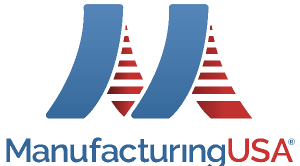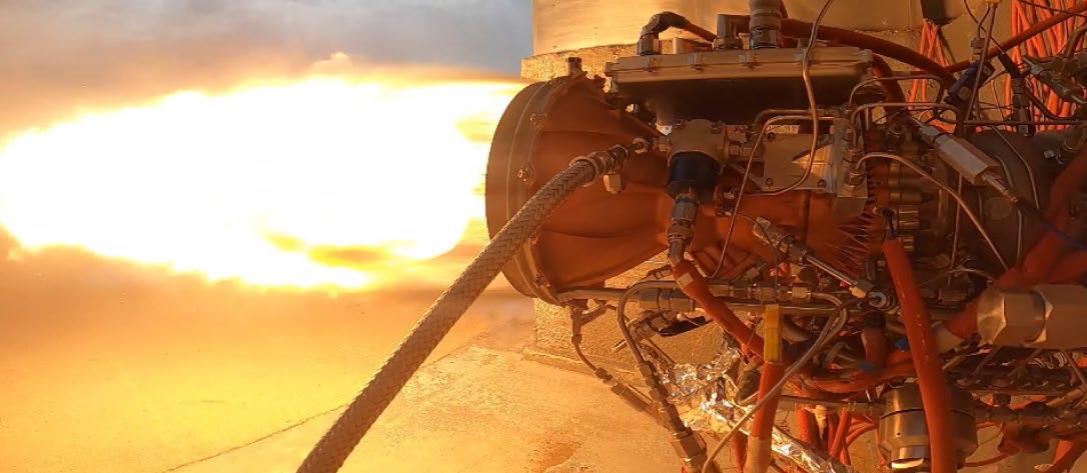


Hotfire testing GrCop-42 Thrust Chamber Assembly (TCA) on the vacuum variant of the Hadley liquid rocket engine.
Problem
Additive manufacturing (AM) is integral to the production of high-performance rocket propulsion systems, as it enables precise geometric control of material, material composition, and functionality. High performance combustion chambers require a copper alloy for its high conductivity and heat flux capacity, which translates to a more efficient impulse, or a more efficient engine. Adoption of copper alloys into the Hadley rocket engine design requires the development and testing of new manufacturing processes to improve performance and durability.
Objective
In Phase l, Ursa Major Technologies (UMT) stood-up GrCop-42 copper alloy AM capability; established and qualified a manufacturing process parameter set; and produced prototype thrust chambers for the vacuum Hadley liquid rocket engine . The objective of Phase II task is to leverage the data and processes from Phase I to complete development engine testing, and transition from printing protype hardware to printing qualification hardware. Benefits will include improved engine performance for commercial and Government customers and continued market pull on powder feedstock capacity.
Technical Approach
The UMT team is leveraging new additive technologies and specialized materials to accelerate manufacturing and improve propulsion performance of space launch and high temperature application vehicles. To execute this effort, the UMT team, comprised of members with materials development backgrounds from the top rocket engine programs in the country, will develop and refine requirements for a copper thrust chamber assembly (TCA) for the vacuum variant of the Hadley rocket engine and iterate the design as necessary. The requirements will ensure the overall engine performance parameters are met.
UMT will manufacture a minimum of 10 development TCAs using GrCop42 copper alloy and laser powder bed fusion, which will be integrated onto vacuum Hadley development engines. These development engines will undergo an extensive test campaign to inform design iterations and increase performance. Upon completion of the test campaign, UMT will manufacture a minimum of four TCAs to be used in vacuum Hadley Flight Qualification engines. These TCAs will be machined, inspected, functionally tested, and delivered to the UMT engine assembly team. The data gathered, lessons learned, and results of this Phase II will support future vacuum Hadley engine qualification test campaigns.
Project Participants
Project Principal

Other Project Participants
- America Makes/NCDMM
Public Participants
- U.S. Department of Defense
